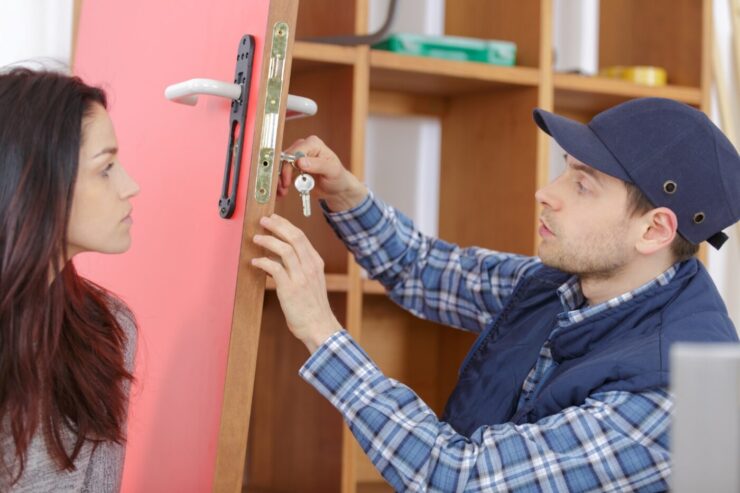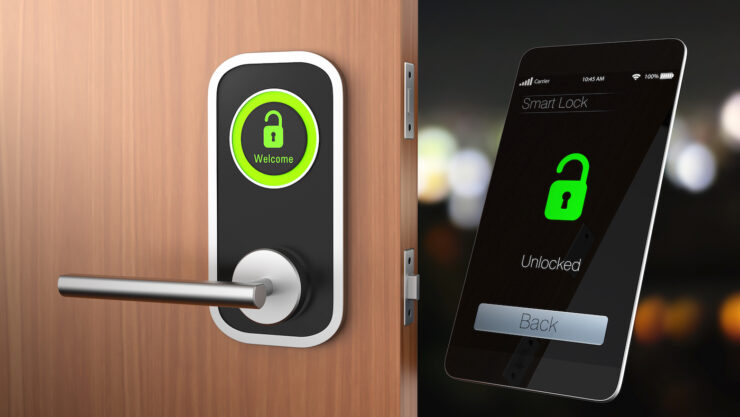Table of Contents
Getting locked out of the house is an experience most can relate to. That dreadful realization that your keys are inside can induce a surge of panic and frustration, leaving you feeling helpless on your own doorstep. However, this common predicament is not insurmountable, and the intention of this post is to equip you with pragmatic, easily-implemented solutions for such occurrences. By understanding a diverse range of approaches and strategies, you can navigate this inconvenient situation efficiently, alleviating stress and enabling a swift resolution.
Stay Calm and Assess the Situation
It’s fundamentally crucial to maintain a calm demeanor in such vexing situations. A turbulent mind can obstruct rational thought processes, leading to unproductive and hasty decisions. When locked out, inhale deeply, exhale slowly, and assess your current predicament logically and methodically. Deliberate whether you have access to a spare key, or if there’s a possibility of entering through an unlocked window or door. By fostering a tranquil mind, you position yourself to devise effective strategies, ensuring that panic doesn’t exacerbate an already frustrating circumstance.
Check for Open Windows or Doors
Upon achieving a calm state of mind, diligently scan your property for any accessible entry points like unlocked windows or doors. It could be the most immediate solution to regain access to your abode. However, it’s imperative to remain conscious of potential safety hazards. Refrain from attempting to enter through elevated or unstable areas, and prioritize personal well-being over hurried entry. If a safe, accessible point of entry is found, remember to secure it promptly upon reentry, mitigating any subsequent security vulnerabilities.
Contact a Trusted Neighbor or Friend

Having established tranquility and ruled out immediate entry points, the next viable step is to connect with someone who may assist. Neighbors, friends, or family members who have been entrusted with a spare key can be invaluable in these situations. The essence of maintaining healthy, mutually respectful relationships with those around you becomes particularly evident during lockout scenarios. It is these bonds that can alleviate the stress and potentially expedite resolution, emphasizing the importance of community and mutual support during such stressful situations.
Use a Spare Key or Hidden Key
Many opt to hide a spare key somewhere around their property, a strategy that could swiftly resolve your lockout situation. The effectiveness of this method lies in choosing an inconspicuous and secure hiding place. Having a spare key at your disposal can transform a stressful situation into a minor inconvenience. Another secure alternative is installing a key lockbox; this allows trusted individuals to access your spare key when needed. By having such measures in place, you prepare yourself proactively for unexpected lockouts, reducing potential stress and inconvenience.
DIY Lock Picking
It’s crucial to address the legal implications and constraints surrounding lock picking. It is legally permissible only when you are attempting to gain access to your property, and even so, it requires a thoughtful approach. Having access to suitable tools and knowledge can empower homeowners to regain access, albeit cautiously. Navigating lock picking requires a combination of knowledge, finesse, and patience. While this might be a viable last resort, it necessitates a comprehensive understanding of the lock mechanisms and utmost caution to avoid irreversible damage.
Call a Locksmith

Engaging the services of a professional locksmith is often the safest and most efficient means of regaining access to your home. A qualified locksmith, such as locksmith Kansas City, can navigate complex lock mechanisms with precision, mitigating the risk of damage. When selecting a locksmith, prioritize those with established reputations, transparent pricing, and necessary certifications. This ensures the legitimacy and reliability of the service provided. A seasoned locksmith can offer peace of mind, guaranteeing secure, swift access with minimal disruption.
Attempt to Remove the Doorknob or Lock
Sometimes, dismantling the doorknob or lock may be a viable solution. This method requires a basic understanding of lock structures and access to appropriate tools. A meticulous approach is crucial to avoid inflicting damage that could incur additional costs. By aligning the tools correctly and following structured steps, one may find this method a manageable solution to gain entry without compromising the lock’s integrity significantly. However, consider this approach cautiously, bearing in mind the potential ramifications and additional expenses that may arise.
Use a Credit Card or Plastic Card
The method of using a plastic card to bypass a lock is often portrayed in various media, but its practicality is conditional. The card-sliding technique is feasible primarily on slant-latched doors and necessitates a level of precision and understanding of the lock mechanism. This method is not universally applicable and carries risks such as damaging the card or the door frame. Its limited success rate makes it a lesser-recommended approach, suitable predominantly for specific lock types and situations.
Consider Smart Lock Technology

Exploring advancements in lock technology, smart locks emerge as a modern solution to traditional lockout situations. These innovative locks offer remote access, user management, and real-time alerts, providing a versatile approach to home security. Incorporating smart lock technology can significantly mitigate lockout scenarios, offering alternative access methods such as codes, mobile apps, or biometrics. By embracing modern technology in home security, you can leverage enhanced convenience, security, and peace of mind, reducing the likelihood of experiencing distressing lockout situations.
Create a Lockout Plan
Proactive planning can be the cornerstone of avoiding lockout-induced stress. Establishing a coherent, well-communicated lockout plan within your household can facilitate swift resolution should a lockout occur. Clear communication regarding spare key locations, alternative entry points, and designated contacts in lockout situations can preemptively alleviate the associated stress and inconvenience. A well-orchestrated plan can streamline the resolution process, fostering a sense of preparedness and collective responsibility among household members.
Conclusion
Confronting a lockout can be daunting, but a variety of strategies exist to navigate such predicaments. The essence of maintaining composure and rationality cannot be overstated, as it forms the foundation for effective problem-solving. From leveraging relationships with neighbors to embracing modern technology, the approaches to resolving lockouts are diverse and adaptable. The synthesis of forethought, knowledge, and community support can transform a lockout from a crisis into a manageable inconvenience. Stay prepared, stay informed, and remember, the key to resolving a lockout is staying calm and utilizing the resources at your disposal.

